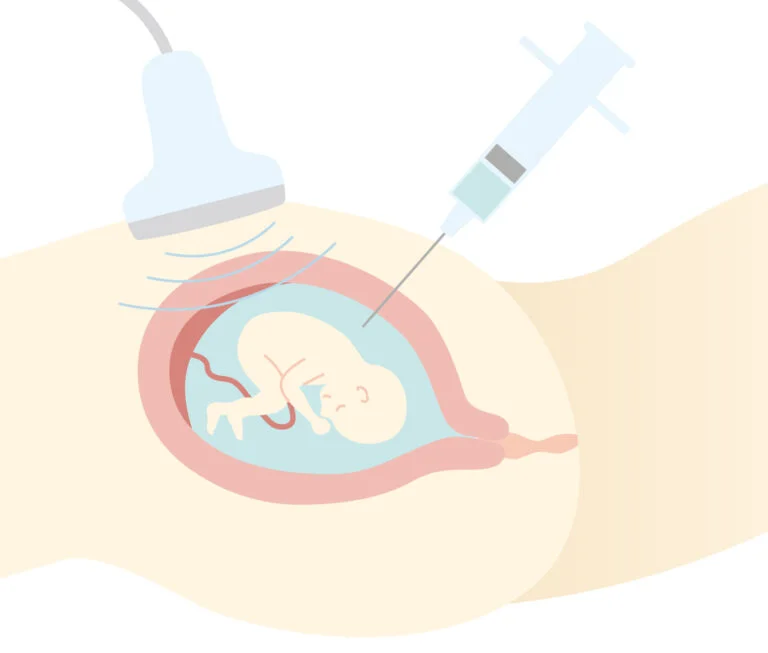
meet Dr. Raghav Arora
What is Amniocentesis?
An amniocentesis is a prenatal test that allows your fetal medicine specialist to extract a sample of amniotic fluid from the uterus to diagnose chromosomal abnormalities in the baby. The amniotic fluid contains skin cells shed from the baby and can diagnose chromosomal abnormalities such as Down syndrome. Amniocentesis produces a karyotype – a picture of the baby’s chromosomes – to determine any abnormalities. (In about 1 percent of cases, there’s a problem with the specimen, and the test doesn’t yield a result.) Amniocentesis is usually done when a woman is between 16 and 20 weeks pregnant. Though all women have the option of having an amniocentesis, women for whom this test is recommended are often those at increased risk for genetic and chromosomal problems. The test is invasive and carries a small chance of miscarriage (0.01%)

